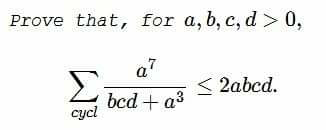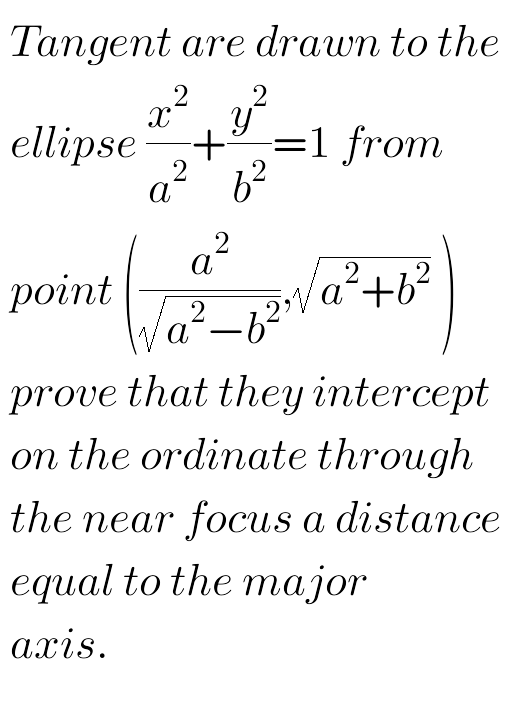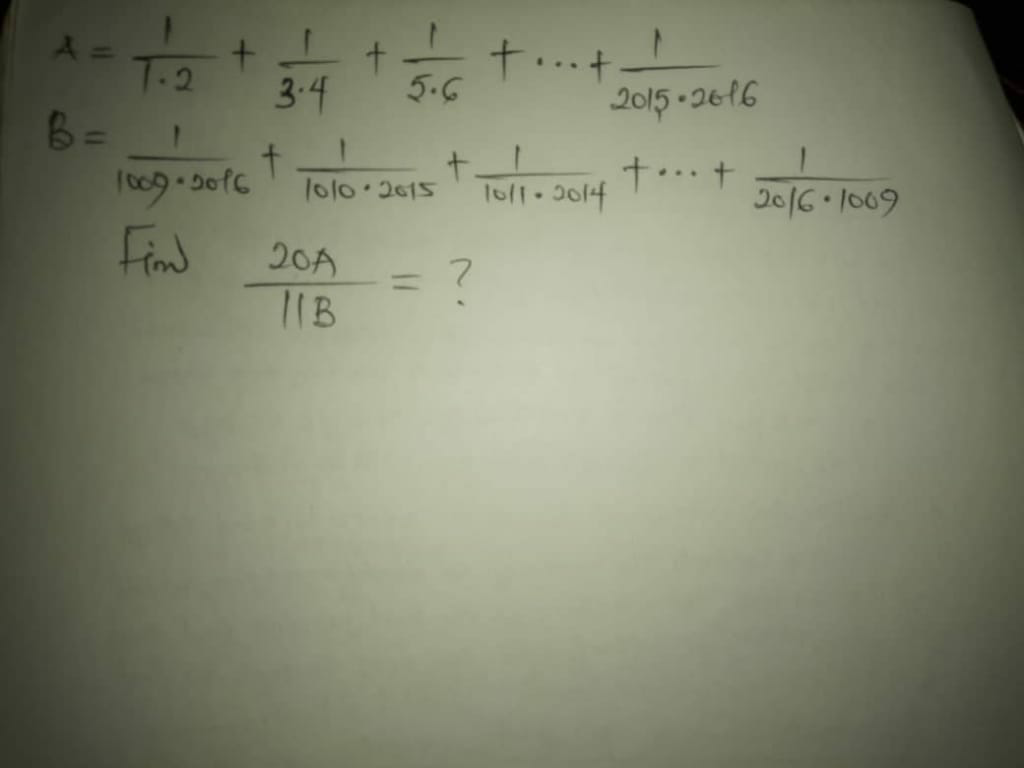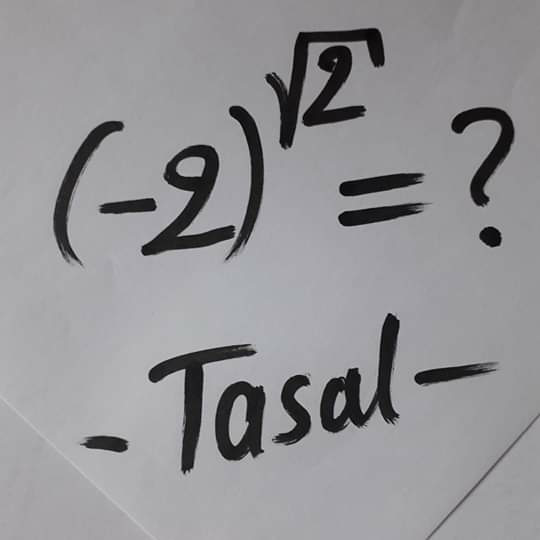
AllQuestion and Answers: Page 1413
Question Number 71894 Answers: 0 Comments: 1
Question Number 71991 Answers: 1 Comments: 0

Question Number 71886 Answers: 0 Comments: 0

Question Number 71868 Answers: 0 Comments: 3

Question Number 71864 Answers: 1 Comments: 2
$${Draw}\:{the}\:{graph}\:{of}\:: \\ $$$${x}=\mid{y}\mid\:\sqrt{\mathrm{1}−{y}^{\mathrm{2}} } \\ $$
Question Number 74678 Answers: 1 Comments: 0
Question Number 71852 Answers: 1 Comments: 0
Question Number 71850 Answers: 2 Comments: 0
Question Number 71849 Answers: 1 Comments: 0
Question Number 71838 Answers: 1 Comments: 3
Question Number 71831 Answers: 1 Comments: 2

Question Number 71824 Answers: 2 Comments: 1
$${solve}\: \\ $$$${x}^{{x}^{{x}^{\mathrm{2019}} } } =\mathrm{2019} \\ $$
Question Number 71819 Answers: 1 Comments: 3
Question Number 71816 Answers: 1 Comments: 0
Question Number 71814 Answers: 1 Comments: 2
$$\int\frac{\mathrm{1}}{\mathrm{1}+\mathrm{cot}\:{x}}{dx} \\ $$
Question Number 71813 Answers: 0 Comments: 0
Question Number 71810 Answers: 0 Comments: 0

Question Number 71809 Answers: 1 Comments: 0

Question Number 71806 Answers: 1 Comments: 0

Question Number 71802 Answers: 1 Comments: 1
Question Number 71801 Answers: 0 Comments: 0
Question Number 71799 Answers: 2 Comments: 0

Question Number 71777 Answers: 0 Comments: 1
Question Number 71776 Answers: 1 Comments: 0

Question Number 71769 Answers: 0 Comments: 3
Question Number 71767 Answers: 0 Comments: 0
Pg 1408 Pg 1409 Pg 1410 Pg 1411 Pg 1412 Pg 1413 Pg 1414 Pg 1415 Pg 1416 Pg 1417
